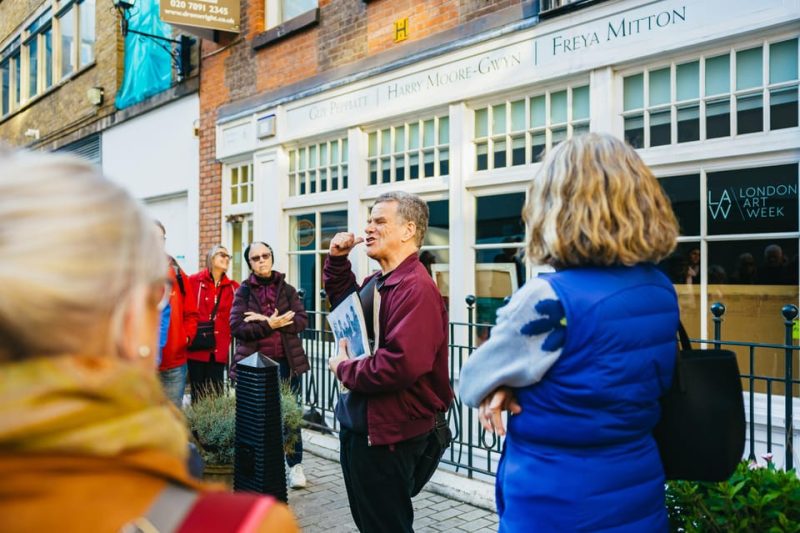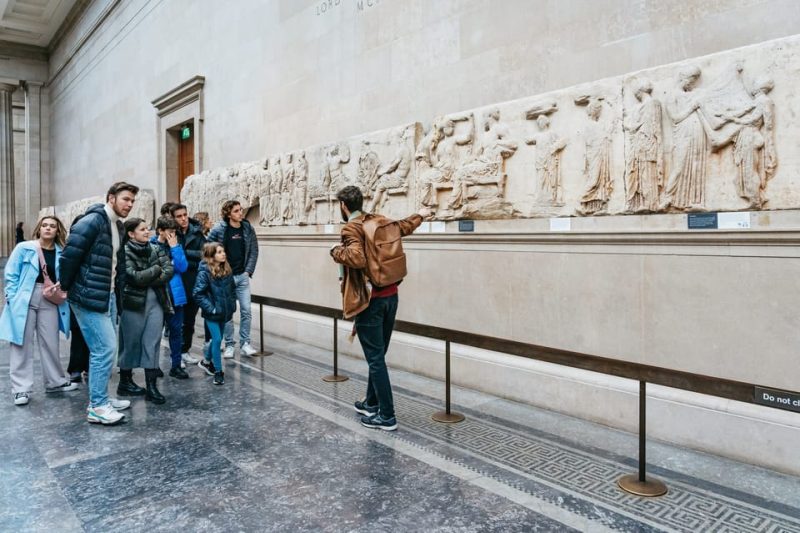Understanding the Role of a Tour Guide

Becoming a tour guide is more than just showing people around. It’s about creating memorable experiences and connecting visitors with the local culture, history, and attractions. To truly thrive in this role, you should have a solid grasp of the responsibilities, types of tours offered, and the essential skills needed for success.
Key Responsibilities and Duties of Professional Tour Guides
Tour guides wear many hats. Here are some of the primary duties you can expect:
- Planning Tours: Crafting detailed itineraries that include transportation, sites to visit, and activities.
- Leading Groups: Guiding tourists through various locations while ensuring their safety and enjoyment.
- Sharing Knowledge: Providing engaging insights about historical sites, cultural customs, and local legends.
- Handling Logistics: Managing tickets, reservations, and any unforeseen issues during the tour.
- Building Rapport: Establishing a connection with guests to enhance their experience and encourage feedback.
Different Types of Tour Guiding
The beauty of being a tour guide lies in the diversity of options available. Depending on your interests and expertise, you could specialize in different areas:
- Historical Tours: Focus on the rich background of a location, often incorporating storytelling to bring history to life.
- Adventure Tours: Lead groups in outdoor activities like hiking, kayaking, or cycling, emphasizing safety and fun.
- Cultural Tours: Immerse visitors in local traditions, cuisine, and art, offering a deeper understanding of the community.
- Wildlife Tours: Guide nature enthusiasts through parks or reserves, educating them about local flora and fauna.

Essential Skills and Qualities Needed for Success
To excel as a tour guide, certain skills and qualities are paramount:
- Communication Skills: The ability to convey information clearly and engagingly is crucial. This includes speaking confidently and listening attentively to guests.
- Interpersonal Skills: Building rapport with diverse groups enhances the overall experience and encourages positive interactions.
- Adaptability: Not every tour goes as planned. Being flexible allows you to handle changes and challenges effectively.
- Passion for Learning: A genuine interest in history, culture, and geography will enrich your knowledge base and improve your storytelling skills.
- Organizational Skills: Keeping track of details, schedules, and group dynamics is vital for smooth tour operations.
As you dive deeper into this field, remember that each of these aspects contributes significantly to your effectiveness as a tour guide. Emphasizing these responsibilities, types of tours, and skills will set a solid foundation for your journey ahead.
With a clear understanding of what it takes to be a successful tour guide, you can now explore the educational pathways and certifications that will help you establish yourself in this vibrant industry.
Educational Requirements and Certifications
To embark on a rewarding journey as a tour guide, understanding the educational requirements and certifications is crucial. While a high school diploma or equivalent is often the minimum requirement, pursuing further education can significantly enhance your prospects in this competitive field.
Relevant Degree Programs and Educational Pathways
Many aspiring tour guides find that obtaining a bachelor’s degree in fields related to hospitality, history, tourism, or communications can provide them with an edge. Here are some relevant programs to consider:
- Hospitality Management: This program covers essential aspects of customer service and business management, making it ideal for those looking to excel in the tourism industry.
- History or Cultural Studies: A background in history or cultural studies not only enriches your knowledge but also helps you engage customers through fascinating narratives and insights about local attractions.
- Tourism Management: Specifically focused on the tourism sector, these programs often include training in marketing, event planning, and sustainable tourism practices.
Professional Certifications and Licenses Required
While degrees can be beneficial, certifications can further establish your credibility. Consider pursuing certifications from reputable organizations. Notable options include:
- World Federation of Tourist Guide Associations (WFTGA): Their certification program is recognized globally and emphasizes best practices in guiding.
- International Tour Management Institute (ITMI): ITMI offers comprehensive training that prepares you for various roles within the tourism sector, enhancing your employability.
Many regions may also require specific licenses to operate legally as a tour guide. It’s important to research local regulations to ensure compliance.

Specialized Training Programs and Workshops
Beyond formal education, specialized training programs and workshops can be invaluable. These opportunities allow you to hone specific skills, such as:
- Storytelling Techniques: Workshops focusing on storytelling can help you captivate your audience, making tours more engaging and memorable.
- Language Skills: If you want to cater to international tourists, consider taking language courses. Being fluent in multiple languages can set you apart and expand your client base.
- Cultural Sensitivity Training: Understanding cultural nuances fosters better connections with diverse groups and enhances the overall experience for tourists.
Investing time in these programs not only builds your expertise but also boosts your confidence as a guide.
As you navigate the educational landscape, remember that building a strong foundation is essential for success in the tour guiding profession. The next step involves gaining practical experience, which will further refine your skills and prepare you for the dynamic world of tourism.
Building Essential Knowledge Base
As you embark on your journey to becoming a successful tour guide, developing a robust knowledge base is crucial. This foundation will not only enhance your credibility but also enrich the experiences you offer to your clients. Here’s how to effectively build this essential knowledge base.
Developing Expertise in Local History, Culture, and Attractions
Your primary responsibility as a tour guide is
Gaining Practical Experience
Internship and Apprenticeship Opportunities
One of the best ways to kick-start your journey as a tour guide is to secure an internship or apprenticeship. These roles provide hands-on experience, allowing you to learn the ropes under the guidance of seasoned professionals. Look for opportunities with local tour companies, visitor centers, or historical societies.
Internships often offer flexible schedules, making it easier to balance them with your educational commitments. Not only do you gain valuable skills, but you also build a network that can help you land future gigs. Some companies even hire interns full-time after successful internships, so it’s a win-win situation!

Volunteering and Entry-Level Positions
Volunteering is another fantastic way to gain practical experience. Many museums, national parks, and cultural organizations welcome volunteers who can assist with tours. This not only allows you to hone your guiding skills but also helps you connect deeply with the local culture and history.
Entry-level positions in tourism-related businesses can also serve as stepping stones. Working as a receptionist at a hotel, or in a customer service role at a travel agency, offers insights into the tourism industry. These experiences will make your transition into a guiding role smoother by giving you a broader understanding of client expectations and operational procedures.
Networking with Industry Professionals
Networking is crucial in the tourism industry. Attend industry events, workshops, and seminars where you can meet experienced tour guides, agency owners, and other tourism professionals. Join online forums or social media groups dedicated to tour guiding; these platforms are goldmines for advice and connections.
Don’t underestimate the power of relationships! Engaging with peers and mentors can lead to job referrals, collaborative opportunities, and insider tips about potential job openings. The more people you know, the better your chances of landing a guiding position.
Learning from others not only enhances your skills but also provides inspiration. Share your aspirations and seek feedback on your guiding methods. This can help you refine your approach and develop a unique style that sets you apart from others in the field.
By immersing yourself in these practical experiences, you’ll be well on your way to becoming a skilled tour guide. Each opportunity brings you closer to understanding the nuances of guiding, enhancing your confidence and competence in this rewarding profession. As you gather knowledge and experience, you’ll find yourself ready to tackle the next steps in building a successful career.
Business and Legal Considerations
Navigating the business and legal aspects of being a tour guide is essential for building a successful career. This includes understanding tourism regulations, securing necessary permits, and deciding whether to operate independently or work for a company.
Understanding Tourism Regulations and Legal Requirements
Each region has its own set of tourism regulations that govern how tour guides operate. These rules can cover everything from licensing, safety standards, to environmental considerations. For instance, some cities or countries may require you to obtain a specific tour guide license before you can legally conduct tours.
It’s crucial to research local regulations thoroughly. Failure to comply can lead to fines, operational restrictions, or even being barred from conducting tours. Additionally, keeping abreast of any changes to these laws can save you from potential legal troubles down the line.
Insurance and Liability Considerations
Insurance is another critical aspect that every tour guide should consider. Having adequate insurance coverage protects you from claims resulting from accidents or unforeseen incidents during tours. Common types of insurance for tour guides include:
- General liability insurance: Covers bodily injury or property damage claims.
- Professional liability insurance: Protects against claims of negligence or inadequate service.
- Vehicle insurance: Essential if you are transporting clients in your vehicle.
Understanding the scope of your insurance policy is paramount. It’s advisable to consult with an insurance professional who specializes in the tourism industry to ensure that you have the right coverage for your operations.
Setting Up as an Independent Tour Guide vs. Working for Agencies
Deciding whether to work independently or for an agency is a significant step in your journey as a tour guide. Each option has its unique advantages and challenges.
Working for an agency:
- Pros:
- Steady income and less administrative responsibility.
- Access to established client bases and marketing support.
- Opportunities for training and professional development.
- Cons:
- Limited control over tour content and pricing.
- Higher dependency on the agency for income and job stability.
Operating independently:
- Pros:
- Freedom to create your own tour packages and set prices.
- Greater flexibility in scheduling and client interactions.
- Opportunity to build personal brand and client relationships.
- Cons:
- Increased responsibility for marketing, bookings, and customer service.
- Financial risks associated with starting and maintaining your business.
- Need for self-motivation and discipline.
Ultimately, the choice between these paths depends on your personal goals, financial situation, and desired level of independence.
As you weigh these options and prepare to embark on your tour guiding journey, remember that the foundation you’ve built through education, knowledge, and practical experience will serve you well. With the right approach to the business side of things, you’ll be better positioned to thrive in this exciting field.
Next, we’ll delve into effective ways to market yourself and build a strong brand in the competitive world of tour guiding.

Marketing and Building Your Brand
Creating a Professional Online Presence
Building a professional online presence is critical for today’s tour guides. In an age where most people research their options online, having a robust digital footprint can make all the difference. Here are some effective ways to establish your online presence:
- Website Development: Create a user-friendly website showcasing your tours, background, and contact information. Make sure it includes high-quality images and testimonials from past clients. Use clear calls to action that encourage visitors to book or inquire about your services.
- Social Media Engagement: Leverage platforms like Instagram, Facebook, and Twitter to share engaging content about your tours. Regularly post photos, videos, and updates to keep your audience interested. Interact with followers by responding to comments and messages promptly.
- SEO Optimization: Invest time in Search Engine Optimization (SEO) to improve your website’s visibility on search engines. Use relevant keywords related to your tours and location to attract potential customers actively searching for experiences in your area.
Developing Unique Tour Packages and Specializations
To stand out in a competitive market, developing unique tour packages is essential. Consider what makes your region special and create themed tours that highlight its uniqueness. Here are some ideas:
- Niche Tours: Focus on specific interests such as culinary experiences, historical walks, or adventure activities. Tailor your offerings to cater to various demographics—families, solo travelers, or corporate groups.
- Seasonal Specials: Create limited-time tours based on local events or seasons. For example, holiday-themed tours or summer outdoor adventures can draw interest from both locals and tourists.
- Collaborations: Partner with local businesses, hotels, or attractions to offer packaged deals. This not only enhances your offerings but expands your reach through cross-promotion.
Building a Client Base and Managing Reviews
Establishing a solid client base is crucial for your growth as a tour guide. Here’s how to effectively build and manage your clientele:
- Networking: Attend local events, trade shows, or tourism fairs to connect with potential clients and other professionals in the industry. Building relationships can lead to referrals and collaborations.
- Customer Feedback: Encourage satisfied clients to leave reviews on platforms like Google, TripAdvisor, or your social media pages. Positive testimonials can significantly influence new customers’ decisions.
- Follow-Up: After a tour, follow up with participants via email. Thank them for joining and ask for feedback. This not only shows you value their opinion but can also lead to repeat business.
Transitioning smoothly from marketing strategies to enhancing your skills will be vital for continued success in the tour guiding profession.
Professional Development and Growth
Continuing Education and Skill Enhancement
As the world of tourism evolves, so too must the skills of a tour guide. Continuing education is essential to stay relevant in this dynamic field. Participating in workshops, webinars, and conferences can provide fresh insights and techniques that keep your tours engaging and informative. Many organizations offer training specifically tailored for tour guides, focusing on areas such as customer service, advanced storytelling, and even digital marketing.
Additionally, consider pursuing online courses that cover emerging trends in tourism, such as sustainable travel practices or virtual guiding techniques. These courses not only expand your knowledge but also enhance your resume, making you more attractive to potential clients and employers.

Staying Updated with Industry Trends and Technologies
In today’s fast-paced world, staying informed about the latest industry trends is crucial. This includes understanding how technology impacts the travel experience. Familiarize yourself with tools like virtual reality (VR) for immersive tours or mobile apps that enhance the visitor experience. Social media platforms are also vital for promoting your services and connecting with potential customers.
Regularly follow industry publications, blogs, and podcasts to keep abreast of new developments. Joining professional associations can also provide access to valuable resources and networking opportunities. The more you know about current trends, the better equipped you’ll be to adapt your tours to meet changing traveler expectations.
Expanding Services and Scaling Your Business
Once you’ve established a solid foundation, think about ways to expand your offerings. Diversifying your services can attract a broader clientele. For instance, if you specialize in cultural tours, consider adding themed events, food tastings, or interactive workshops to your repertoire.
Scaling your business may also involve collaborating with other local businesses, such as hotels or restaurants, to create package deals that provide added value to clients. This not only enhances the customer experience but also opens new avenues for growth.
Conclusion: How to Become a Tour Guide? A Journey Beyond Employment
Becoming a tour guide is so much more than just finding a job—it’s stepping into a world full of adventure, cultural connections, and meaningful personal growth. With the help of this guide, you’re setting yourself up for success in a career that’s as exciting as it is rewarding.
Every part of your journey, whether it’s honing your communication skills or diving deep into the history and details of your destination, plays a vital role. These efforts will help you become the kind of tour guide who captivates and inspires travelers from all over the globe.
This path isn’t just about work; it’s about crafting stories that spark curiosity and creating unforgettable memories for those you guide.





Be the first to comment